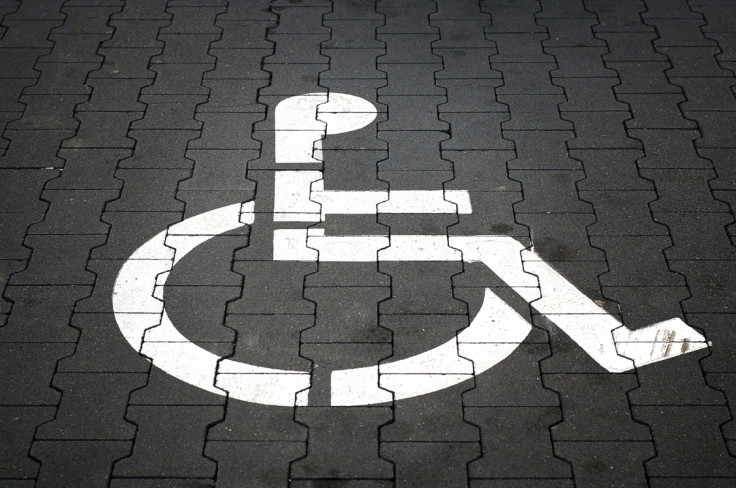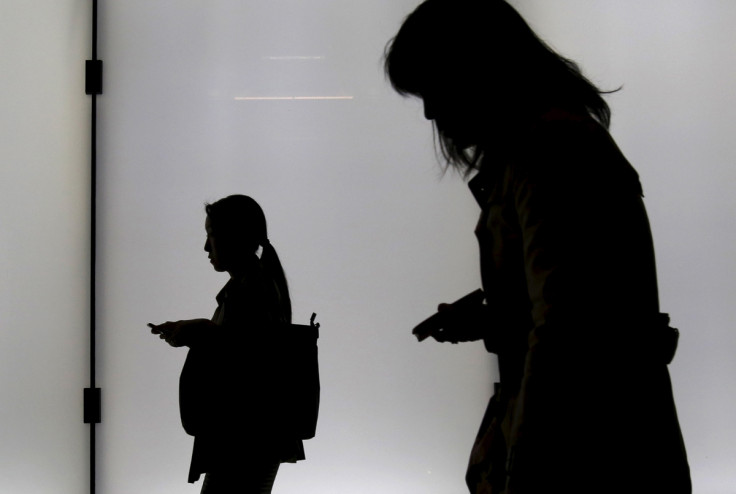International Day of Persons with Disabilities 2015: Invisible disabilities and seeing beyond the wheelchair

From Crohn's disease to cancer, millions of people around the world live with a disability, illness or condition that is not visible. Blogger Sam Cleasby was diagnosed with inflammatory bowel disease in 2003 and has since had numerous surgeries to remove her colon. Like many others with hidden conditions, she has experienced judgment over using facilities such as accessible toilets – just because others can't see her illness.
"I wrote an open letter to a woman on my blog who judged me for using accessible toilets," Cleasby says. "I wrote: 'I know you saw me running in, with my able bodied legs and all. You saw me opening the door with my two working arms. Without any visible sign of disability. My lack of wheelchair may have suggested to you that I was some lazy cow who didn't care. You may have seen my face blushing as I caught your eye and assumed I was showing guilt at blagging the disabled loos. You tutted loudly.'"
People with cancer, prosthetic limbs, autism, Tourette's, brain disorders, bladder issues, partners with dementia and so many others all saying the same thing. There is more to them than meets the eye
A hidden disability refers to a wide range of conditions and illnesses that are not immediately visible, including epilepsy, cancer, fibromyalgia, HIV, Aids, gastrointestinal problems, myalgic encephalopathy (ME), mental health conditions and hearing difficulties, to name a few.
Earlier in 2015, Cleasby launched the #MoreThanMeetsTheEye campaign to take a stand for those who live every day with an illness of disability that affects their lives but is unseen by others. She has received thousands of messages from readers who have faced similar judgment from members of the public.
"People with cancer, prosthetic limbs, autism, Tourette's, brain disorders, bladder issues, partners with dementia and so many others all saying the same thing," Cleasby says. "There is more to them than meets the eye. Their disabilities may not be visible at a glance but they are so real and they make their lives difficult at times. That not every disability requires a wheelchair and that using an accessible toilet or disabled parking space isn't a luxury or a privilege, it is a necessity for them to lead their lives."
Disablism is a global problem, with estimates of over one billion people living with disabilities worldwide facing stigma, exclusion and discrimination – as shown by US presidential candidate Donald Trump mocking a New York Times journalist who has arthrogryposis, a congenital condition that affects joint movement. People with invisible disabilities also face obstacles, such as being accused of misusing accessible toilets, disabled parking spaces and other facilities, as well as challenging misconceptions about their conditions.

Issy McKenzie, 28, has ME – sometimes referred to as chronic fatigue syndrome. The condition affects around a quarter of a million people in the UK and can cause long-term illness and disabilities, with symptoms including severe fatigue and muscle pain. Depression and anxiety can be a result of persistent problems caused by ME.
"I've been pulled up a few times for things like using the disabled loo when I didn't have my cane with me," she says. "It's embarrassing to have someone question whether you know which toilet you should be using. I hate having to use the cane but it's almost easier to carry it around even when you don't need it – if people have a visual signal that you can't walk much, they are less likely to make comments."
"You still get people saying 'what have you done to yourself?' – which is a stupid question. I like to answer, 'nothing. I have ME'."
Not everyone is simply being cruel, though. In her blog, So Bad Ass, Cleasby says she believes many people just believe they are defending the rights of those they think are entitled to use accessible facilities.
People are too quick to judge these days, just because I look normal and speak normal, that doesn't mean I don't have a major disability
Penny Jackson, 29, has Asperger's Syndrome – an autism spectrum disorder. She says she does not feel intentionally victimised because of her condition. "I don't get mistreated deliberately by people who know I have it, but my differences in how I operate socially often result in problems," says Jackson.
"Whether I tell people or not varies, it sometimes feels like it would be playing the disability card to demand sympathy I'm not entitled to. But generally declaring it does result in better treatment from people."
Social media has provided a platform for people with hidden disabilities to raise awareness and talk about their lives. In November, 24-year-old Ste Walker from Halifax, West Yorkshire, who has Crohn's disease, shared a photo of his scars and colostomy bag in a post on Facebook. He described how his condition, which causes inflammation of the digestive system lining, affects him despite looking "normal" on the outside. His post has been shared 75,000 times.
"People are too quick to judge these days, just because I look normal and speak normal, that doesn't mean I don't have a major disability," Walker wrote. "To look at me I look like any normal guy my age, but that's because I want you to view me like that."
Penny Sturgess, from UK disability charity Scope, says: "People with hidden disabilities may not experience discrimination in the same way as someone who is noticeably disabled. At Scope, we frequently hear from disabled people with hidden impairments who have been told off for using disabled toilets and parking bays or accused of being lazy for taking lifts when they struggle to manage stairs because of their condition. Attitudes like this have a hugely negative impact on disabled people's lives.
"Our recent research shows that there continues to be a real lack of public understanding about disability, with 62% of disabled people saying they're treated differently because they are disabled. Raising better awareness of hidden disabilities is crucial to ensure people better understand the range of issues disabled people face."
The International Day of Persons with Disabilities is observed on 3 December.
© Copyright IBTimes 2025. All rights reserved.






















